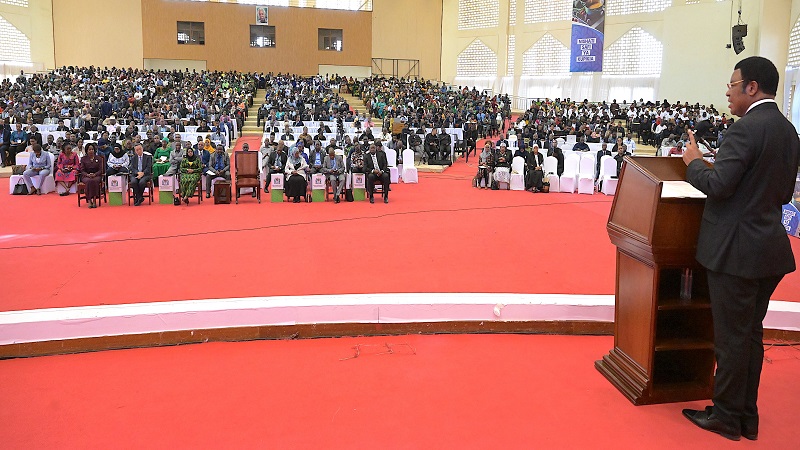CHWs suffer acute mental strain, study demonstrates

COMMUNITY Health Workers (CHWs) are going through major mental health issues, including stress, anxiety, and burnout due to various challenges they face when providing services, according to a recent study.
The study conducted by some local health experts highlights that while healthcare providers such as doctors, nurses, and pharmacists also face similar challenges, they often lack psychological support, partly due to a prevailing belief that they are immune to these issues.
Prof Tumbwene Mwansisya from the Aga Khan University presented the findings at a health research forum, organized by Muhimbili National Hospital (MNH) through the Tanzania Mental Health Community of Practice (TMH-CoP).
In his presentation, Prof. Mwansisya emphasized the urgent need for targeted psychological counselling programs for healthcare workers to mitigate the adverse effects on their service quality and communication.
He noted that healthcare workers are often seen as trees that always appear green and thriving, implying they should not fall ill. This misconception adds to their stress. CHWs, who volunteer and often face issues of inadequate compensation while being part of the community, experience additional stress compared to doctors or nurses who work in formal settings.
He pointed out a common misconception that healthcare workers, especially CHWs, should remain resilient without support.
“This misunderstanding, coupled with inadequate compensation and the emotional toll of their work, exacerbates their stress. CHWs, who often work as volunteers, face additional challenges such as financial constraints and the emotional burden of losing patients they have cared for,’ he said.
He explained that community health workers (CHWs) often face criticism for delays in patient care, even though these delays are usually beyond their control. Their unpaid volunteer work, waiting for funding, and the emotional stress of losing patients significantly contribute to their high stress levels.
The study, conducted in Dar es Salaam with initial efforts in the Coast Region, and fieldwork in Dodoma, Tabora, Arusha, and Mbeya, revealed that the most affected group was CHWs, followed by doctors, pharmacists, laboratory workers, and nurses.
The participants, mostly women with an average age of 39, predominantly held diplomas, were married, and 58 percent were nurses.
According to Professor Mwansisya, 73 percent of the participants had health insurance but still experienced high levels of stress, anxiety, and burnout due to their demanding roles.
The prevalence of stress and anxiety among healthcare workers in Tanzania is 26 percent, which is 5 percent higher than the global average. This heightened stress negatively affects their communication and work quality.
"Many healthcare workers do not seek mental health services due to the stigma and the belief that they are immune to psychological problems," he added.
The study’s findings stress the need for a formal psychological support system to effectively address these issues. Dr. Saidi Kuganda, vice-chairman of the Mental Health Professionals Association (MEHATA) and senior consultant in mental health at MNH, highlighted the stigma associated with mental health struggles among healthcare professionals, which prevents them from seeking necessary psychological support.
The study also noted that CHWs were particularly hard-hit during the COVID-19 pandemic, as they had the dual burden of transporting patients and dealing with their subsequent deaths. It further emphasizes that mental health support for healthcare workers is crucial to maintaining their well-being and effectiveness in providing care.
Top Headlines
© 2024 IPPMEDIA.COM. ALL RIGHTS RESERVED






















